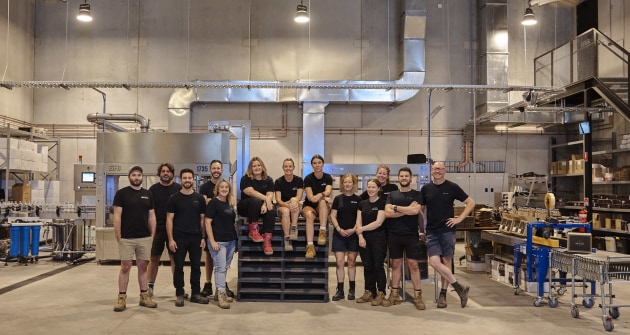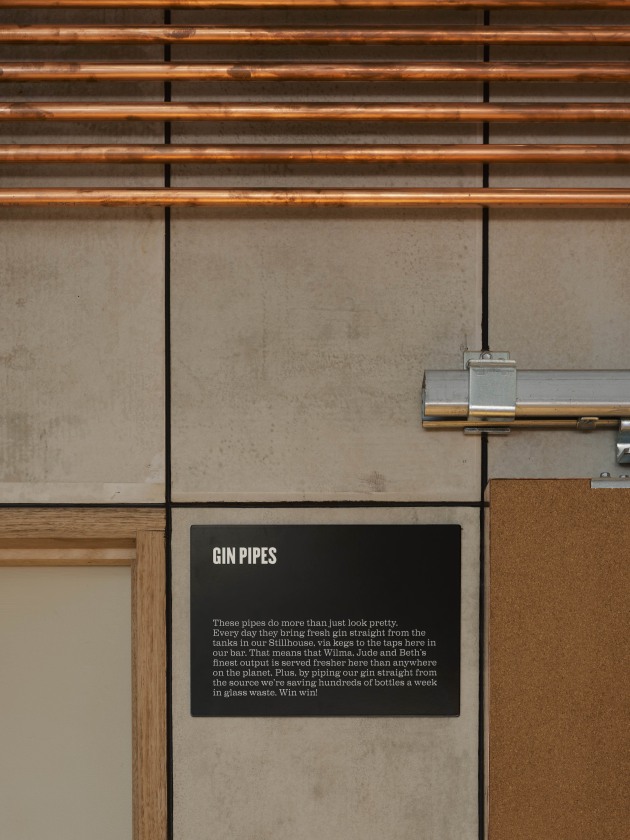As Four Pillars Gin unveils the $7 million dollar upgrade to its Healesville headquarters in Victoria’s Yarra Valley, the distillery announced it is the first carbon neutral gin distillery in Australia.
Just as Capital Brewing Co announced its certification this week, Four Pillars has also been certified by Climate Active.

Climate Active is an Australian government initiative and is regarded as one of the most strident carbon neutral programs worldwide. The program only awards certification to businesses that have reached a state of achieving zero net emissions.
It means all Four Pillars gins bottled onsite will be certified carbon neutral, as will its business operations. It has achieved carbon neutral status by being included in the boundary of Lion Australia’s organisation certification last year (Lion is a partner of Four Pillars).
Four Pillars worked with Climate Active and consultants Ndver Environmental for more than a year to achieve this accreditation, which takes into account all elements of the gin’s journey beyond the distillery door.
Four Pillars co-founder and distiller Cameron Mackenzie said it was a landmark day for the company.
“From the very first day we distilled gin we have tried to recycle, re-use and replenish our environment and give back to the community. We cannot give more to the community than assure it that our gins tread carefully on our planet especially in this time of climate crisis.
“Our journey to carbon neutral began with the simple idea of reusing oranges for marmalade, giving spent botanicals to pigs for feed, putting solar panels on our roof and of course offsetting what can be an energy intensive production process by carefully purchasing mainly domestic carbon credits.
“To be honest, we are doing no more, or less, than what should be expected of a business that is lucky enough to be based in the magnificent natural surrounds of the Yarra Valley,” Mackenzie said.
Revamped distillery
The soon-to-launch Four Pillars distillery, named Healesville 2.0, has seen more than a 1000 square metre expansion of the original site and aims to become a new benchmark for craft gin distilleries worldwide.
The new site is directly adjacent and wholly connected to the original Four Pillars home on Lilydale Road, Healesville and has been designed by Melbourne’s award-winning and sustainability led Breathe Architecture.
The build has also been focused on sustainability, with its construction using recycled and upcycled concrete and bricks, pineapple ‘leather’ upholstery and even building ‘waste’ that has been carefully used and given a second life.
Furniture is all locally sourced, solar power panels clad the roof, and internal and external landscaping includes plantings of local natives and botanicals, many of which will be used in future gin distillations.

Gin will be ‘piped’ directly into the main bar through featured copper pipes to reduce glass waste, plus bottled tonic usage will be massively reduced, replaced in the most part by tonic in kegs. These two initiatives alone will see the site save 29 tonnes of glass per year.
The whole site, incorporating the old and new buildings, will be enclosed by a copper ‘veil’ made from 1650 metres of raw copper tubing, giving Healesville a stunning new landmark as well as working as a natural heat exchange to reduce energy consumption.
Ongoing sustainability programs include re-using the one tonne of spent botanicals produced each week in our Made from Gin food range or as mulch for local gardens.
Healesville 2.0 is set to open to the public at the end of April.












